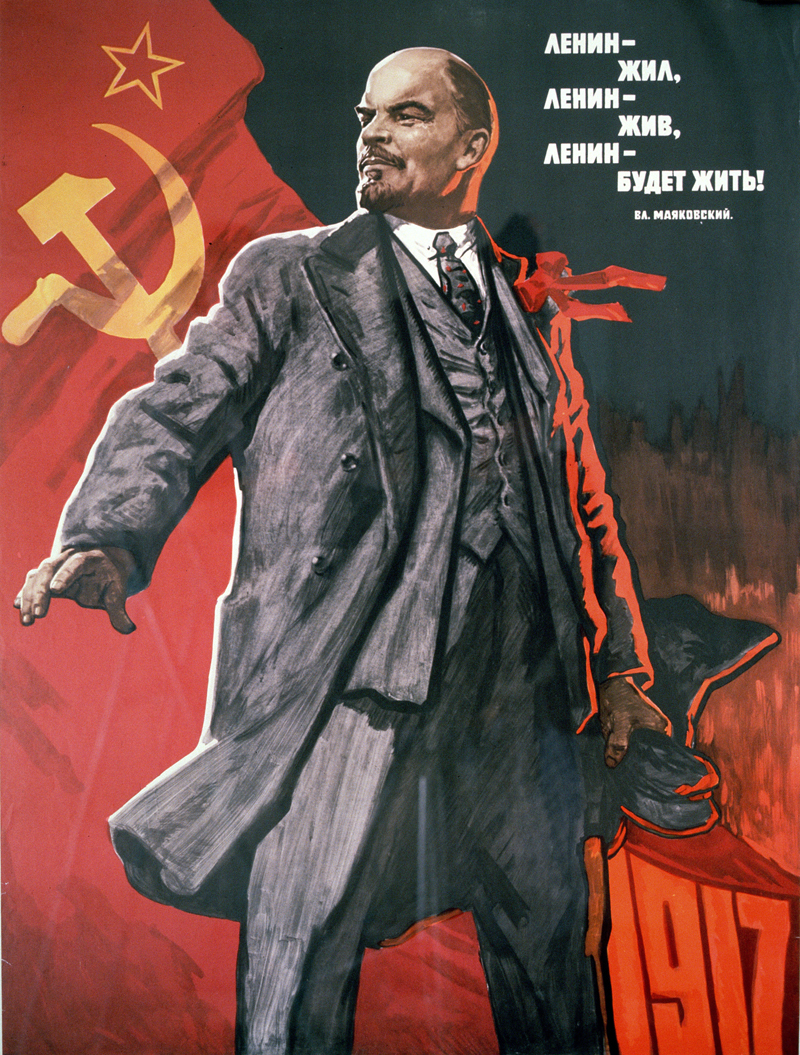Introduction
CHAPTER TWENTY ONE
Revolution, Socialism, and Global Conflict
The Rise and Fall of World Communism
1917–Present

An upstanding Soviet citizen entered a medical clinic one day and asked to see an ear-and-eye doctor. Asked about his problem, the man replied: “Well, I keep hearing one thing and seeing another.”
A Frenchman, an Englishman, and a Soviet Russian are admiring a painting of Adam and Eve in the Garden of Eden. The Frenchman says, “They must be French; they’re naked and they’re eating fruit.” The Englishman says, “Clearly, they’re English; observe how politely the woman is offering fruit to the man.” The Russian replies, “No, they are Russian communists, of course. They have no house, nothing to wear, little to eat, and they think they are in paradise.”
These are two of an endless array of jokes that had long circulated in the Soviet Union as a means of expressing in private what could not be said in public. A major theme of those jokes involved the hypocrisy of a communist system that promised equality and abundance for all but delivered a dismal and uncertain economic life for the many and great privileges for the few. The growing disbelief in the ability or willingness of the communist regime to provide a decent life for its people was certainly an important factor in the collapse of the Soviet Union in 1991 and the end of communism in the land of its birth. Amid that disillusionment, it was hard to remember that earlier in the century communism had been greeted with enthusiasm by many people—in Russia, China, Cuba, Vietnam, and elsewhere—as a promise of liberation from inequality, oppression, exploitation, and backwardness.
COMMUNISM WAS A PHENOMENON OF ENORMOUS SIGNIFICANCE IN THE WORLD OF THE TWENTIETH CENTURY. Communist regimes came to power almost everywhere in the tumultuous wake of war, revolution, or both. Once established, those regimes set about a thorough and revolutionary transformation of their societies—“building socialism,” as they so often put it. Internationally, world communism posed a profound military and political/ideological threat to the Western world of capitalism and democracy, particularly during the decades of the cold war (1946–1991). That struggle divided continents, countries, and cities into communist and noncommunist halves. It also prompted a global rivalry between the United States and the Soviet Union (USSR) for influence in the Global South. Most hauntingly, it spawned an arms race in horrendously destructive nuclear weapons that sent schoolchildren scrambling under their desks during air raid drills, while sober scientists speculated about the possible extinction of human life, and perhaps all life, in the event of a major war.
SEEKING THE MAIN POINT
What was the appeal of communism, both in terms of its promises and its achievements? To what extent did promise match achievements?
Then, to the amazement of everyone, it was over, more with a whimper than a bang. The last two decades of the twentieth century witnessed the collapse of communist regimes or the abandonment of communist principles practically everywhere. The great global struggle of capitalism and communism, embodied in the United States and the Soviet Union, was resolved in favor of the former far more quickly and much more peacefully than anyone had imagined possible.
A Map of Time
| 1917 | Russian Revolution |
| 1921 | Founding of Chinese Communist Party |
| 1929–1953 | Stalin in power in Soviet Union |
| 1934–1935 | Long March in China |
| 1945–1950 | Imposition of communist regimes in Eastern Europe |
| 1949 | Communist triumph in China |
| 1950–1953 | Korean War |
| 1958–1961 | China’s Great Leap Forward and massive famine |
| 1959 | Cuban revolution |
| 1962 | Cuban missile crisis |
| 1965–1973 | U.S.–Vietnam war |
| 1966–1976 | China’s Cultural Revolution |
| 1968 | Prague Spring: communist reform movement in Czechoslovakia |
| 1976–early 1990s | Deng Xiaoping and beginnings of communist reforms in China |
| 1979 | Soviet invasion of Afghanistan |
| 1985–1991 | Gorbachev reforms in USSR |
| 1989 | Collapse of communist regimes in Eastern Europe |
| 1991 | Disintegration of Soviet Union |